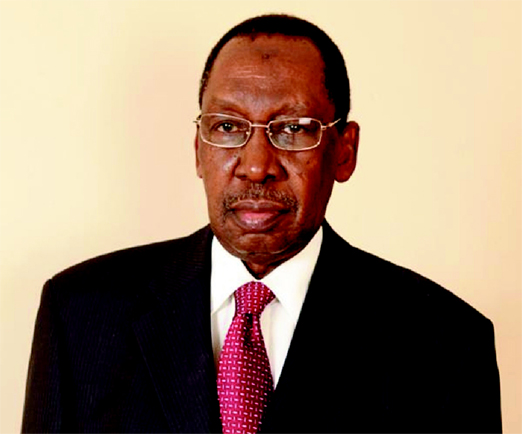[ad_1]
Former Chief Justice of Nigeria (CJN) Mohammed Uwais is dead.
Details of his death were sketchy as of the time of filing this report, but a family source said he died in Abuja.
Born on June 12, 1936, the erudite judge would have clocked 90 years next year.
SPONSOR AD
In a tribute, Dr Kayode Ajulo, Attorney-General of Ondo State, said the deceased lived a remarkable life.
“It is with profound sorrow that I mourn the passing of Chief Justice Mohammed Lawal Uwais, GCON, who has departed this world today. As I contemplate his significant impact on my life as a lawyer and the lives of countless Nigerians, I am filled with deep appreciation for his enduring legacy. My first appearance in any court was at the Supreme Court, under the esteemed leadership of Justice Uwais. His dignified presence commanded respect, and his steadfast commitment to justice inspired not only the legal community but all citizens who sought fairness.”
“Justice Uwais was instrumental in our journey of democratic development and nation-building, serving not only as a jurist but as a visionary reformist of our electoral process. His leadership as Chairman of the Electoral Reform Committee, alongside esteemed members such as Bishop Mathew Kukah and Dr. Olisa Agbakoba, OON, SAN, exemplified his remarkable wisdom. The recommendations he presented not only established new standards but also instilled in our system a profound understanding of law and the responsibilities it entails.
“Among his most significant contributions was the call for the establishment of an independent electoral commission, a vital measure designed to enhance the integrity and transparency of Nigeria’s electoral process. Furthermore, his committee championed the integration of technology in elections, advocating for electronic voting and the transmission of results—initiatives aimed at reducing fraud and fostering public confidence in our electoral system. The reforms also underscored the critical need for voter education and equitable political party financing, ensuring that elections became more accessible and just for all.
“The lasting impact of these recommendations continues to shape our electoral policies and informs the ongoing discourse on improving democratic practices in Nigeria.
“Justice Uwais was a true beacon of integrity, guiding the judiciary with grace and wisdom. His tenure as Chief Justice from 1995 to 2006 fundamentally transformed the landscape of our legal system, laying a foundation that continues to resonate today. Beyond the courtroom, he dedicated himself to the advancement of Nigeria’s electoral process, revealing a profound passion for democracy and good governance.”
After retiring from the Supreme Court, Uwais chaired a panel on electoral reform that submitted a report on 11 December 2008 with recommendations that included establishing commissions to deal with Electoral Offences, Constituency Delimitation and Political Parties Registration and Regulation. Some of the power vested in the Independent National Electoral Commission (INEC) and the State Independent Electoral Commissions would be transferred to the new commissions.
The committee recommended proportional representation in elections to the Federal and State legislatures and to the local government councils. The report also recommended that the head of the Independent National Electoral Commission should be appointed by the judiciary rather than the President. This recommendation was rejected by President Umaru Yar’Adua.
Do you want to share a story with us? Do you want to advertise with us? Do you need publicity for a product, service, or event? Contact us on WhatsApp +2348183319097 Email: platformtimes@gmail.com
We are committed to impactful investigative journalism for human interest and social justice. Your donation will help us tell more stories. Kindly donate any amount HERE




